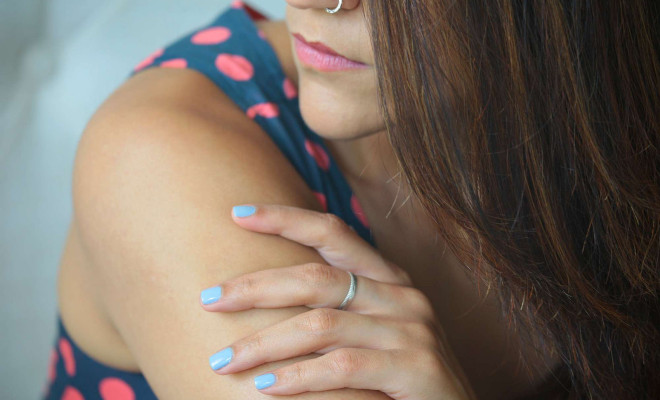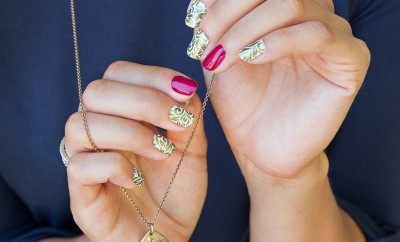 flickr/tanvii
flickr/tanvii
Maintaining Youthful Skin During Cold, Winter Months
Does your skin appear more like a lizard’s in the winter — scaly, flakey, and cracking? It’s tough maintaining youthful skin during the colder months, a true struggle for most people. Even if you continue pampering your skin, it may still become like a gecko’s.
Winter is harsh on skin
Winter is a no-win situation for skin. Constantly exposed to winter’s cold and dry air, your skin can quickly look like … lizard skin! But the cold weather usually drives us indoors, where heaters pump out more dry air, replicating the outdoors. So whether you’re outside or inside, your skin takes a hit.
Cold, dry air and artificial dry heat make us more susceptible to moisture loss, leading to the dreaded scaly, flakey, winter skin.
Preventing winter skin
The loss of skin moisture not only causes dry, cracking skin, but it also speeds up the appearance of fine lines and wrinkles. Knowing this, it should come as no surprise that moisturizer is key.
Here are 8 tips to help your skin retain moisture:
1. Get plenty of sleep.
Less sleep is damaging to skin because stress levels skyrocket. Seven to nine hours a night is ideal for feeling and looking refreshed.
2. Drink lots of water.
Your body is about 60 percent water; without it, your skin dries up quickly. Drink even before you’re thirsty, and aim for about two liters a day.
3. Eat a nutrient-dense diet.
Focus on lean meats, fiber-rich fruits and vegetables, and healthy fats.
4. Exercise more.
Exercising for 30 minutes a day increases skin circulation, promoting healthy skin.
5. Keep showers short.
Hot water for more than 10 minutes pulls out skin moisture.
6. Apply moisturizer.
Keep skin moist by applying moisturizer immediately after showering and washing hands. And be consistent!
7. Avoid skin aging behaviors.
Smoking, excessive alcohol, and unprotected sun exposure will zap skin’s moisture.
8. Replenish ceramides.
Ceramides form the glue that holds your skin cells together. Making up the top layer of skin, ceramides are a type of fat that helps skin retain moisture. Skin ceramides decrease with age, contributing to moisture loss. Replenishing your skin’s ceramides with a plant-based ceramide supplement acts as an inside-out moisturizer.
Choosing a moisturizer
Are you confused by all of the different types of moisturizer out there? Choosing one of these natural moisturizing ingredients should help to do the trick:
1. Aloe vera
Moisturizes and helps retain skin’s elasticity.
2. Witch hazel
Removes impurities and locks moisture into the skin. Of course, choose the alcohol-free versions so you don’t dry your skin further.
3. Moisturizing oils
Safflower, jojoba, sunflower seed, and macadamia nut oils all provide moisture without clogging pores.
Cost-saving Tips
You don’t need to pay an arm and a leg to fend off winter skin. Here’s some cost-saving tips:
1. Organic raw honey
Honey can be used on problem areas. Spread evenly and let sit for 10 to 15 minutes, then rinse.
2. Economical oils
Coconut oil and 100 percent extra virgin olive oil are great for skin. They’re affordable and can also be used for cooking.
3. Wear gloves
Wearing cotton gloves to bed after applying hand cream can keep moisture sealed in while you sleep.
4. Change it up
Change your regimen with the seasons: Use creamier products in the winter and thinner products in the summer.
5. Skin type specific
Read labels to choose products that are geared toward your unique skin type!
Putting these skin moisturizing and cost-saving tips together, you should be well on your way to avoiding the ugly, scaly, lizard skin of winter. Maintaining youthful skin is that easy!
ABOUT THE AUTHOR
Dr. Michael A. Smith, M.D. is senior health scientist and media liaison for Life Extension, the world’s leading organization dedicated to extending the healthy human life span. A graduate of the University of Texas, Southwestern Medical Center in Dallas, Texas, Dr. Smith completed an internship in internal medicine at the University of Utah and a residency in radiology at UT Southwestern Medical Center.





Pingback: How To Get Glowing Skin At Any Age